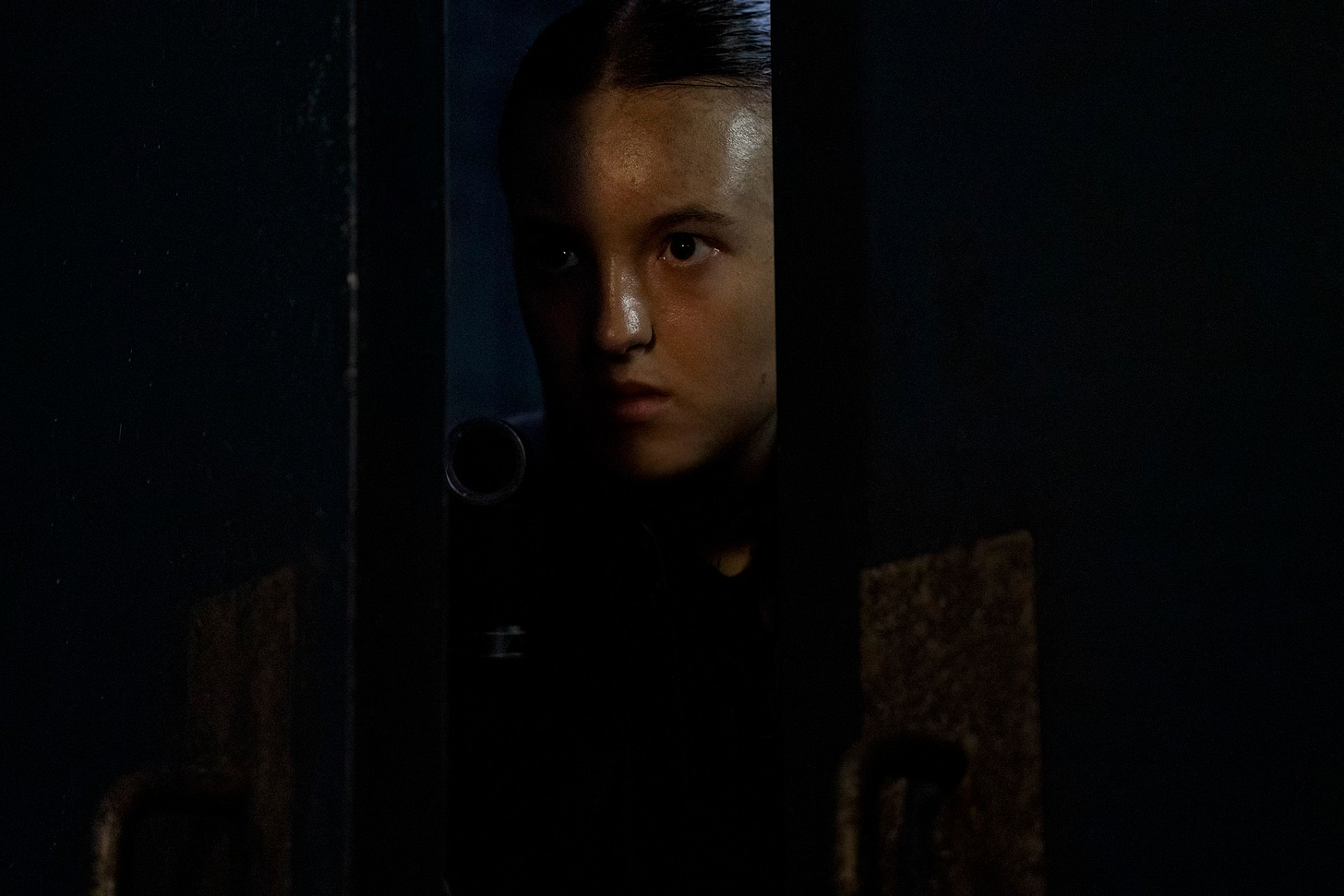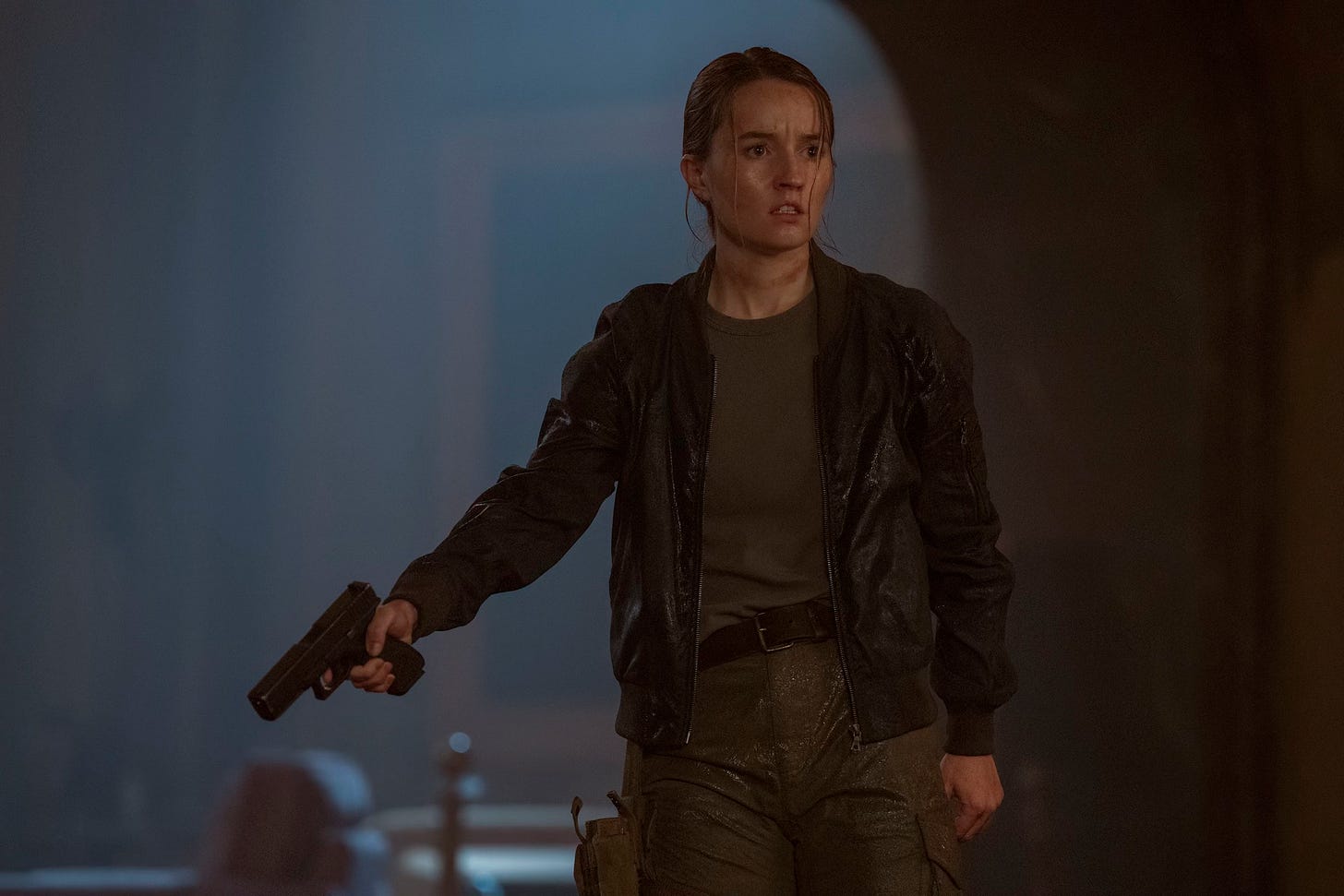'The Last of Us' S2E07 Review | "Convergence"
In which Ellie meets the monster at the end of this book.

[This review contains spoilers for Season 2, Episode 7 of The Last of Us, “Convergence.” It does not contain spoilers for the video game The Last of Us: Part II]
A common refrain about revenge is to “dig two graves.” The idea is that you will kill a part of yourself, or someone will inevitably come after you should you take fatal retribution on another. But as we’ve seen throughout the second season of The Last of Us, two graves are far too few. There is no way to tie off the cycle of vengeance neatly, and while Abby largely vanishes from the story following her murder of Joel, we’re seeing the fallout of her decision to not only kill Joel but also to let Ellie live. What’s meant as an act of mercy instead only creates the conditions for Abby to lose her friends at Ellie’s hands.
Where we end up in “Convergence,” the Season 2 finale, are two strikingly similar young women motivated by grief, and forced to pay the price for trying to find solace in bloodshed. As I’ve said throughout this season, the battle between Abby and Ellie is a microscopic version of what we see play out between the WLF and the Seraphites. Each side feels righteous, neither side can give an inch, and they feel as if they can just kill the right people or enough people, then they will “win.” Where “Convergence” digs a bit deeper is not only the tension between two individuals and two communities, but between the individual and the community.
We see this tension come to the surface in the dichotomy between Ellie and Jesse. For Ellie, there are only individuals. She would go to hell and back for them, but the abstract ideal of “community” makes no sense to her. She wasn’t raised in a community, and while others find comfort in their societies, Ellie invests everything into individuals, whether it’s Riley (Storm Reid), Joel, or Dina. To Ellie, communities are a larger version of us vs. them, and those outside the community, like the Seraphite boy dragged to his death by WLF soldiers, are deemed unworthy of protection, so what good is any kind of value system beyond interpersonal relationships?
To its credit, The Last of Us doesn’t try to offer an easy answer here. The best it can offer is perhaps a basis of survival, but at a tremendous cost of personal morality and identity. When we see Isaac lament Abby’s absence, his subordinate Elise wonders if it’s because he feels some attraction towards Abby. But Isaac has no space for those emotions. He thinks of the WLF only as an organism, and he needs it to live on with competent leaders like Abby, even if he dies. Anything beyond the community’s survival is irrelevant.
Jesse plays like the flipside to Isaac’s coldhearted view of communal perseverance. Jesse is in a far more difficult space where he’s trying to balance the needs of Jackson against the needs of individuals, which is what competent, admirable governance means. We know that he’s right not to try and take on six WLF soldiers because it’s too great a risk despite the moral cost. Balancing morality with pragmatism is never easy, but at least he’s trying.
Of course, being moral and pragmatic guarantees nothing. The episode’s climax sees Ellie, Tommy, Jesse, and Dina reunited at the theater. It seems like they’ll go home together despite Abby surviving Ellie’s rampage. But then Ellie and Jesse hear a commotion in the lobby, and before they can even confront Abby taking Tommy hostage, Abby shoots Jesse in the face and kills him. His sudden and shocking death stresses that morality won’t protect you in this story, but I would also note that death permeates this entire setting. All you have is what kind of person you want to be, and while Jesse’s death may not be fair or just, there’s an empowering idea behind a guy who knows what he’s about.

The alternative is to follow Ellie’s trajectory, which is a self-centered mode of thought that pretends violence can be neatly contained. Nowhere is that flawed thinking more evident than a single bullet killing Owen, Mel, and Mel’s unborn child. It doesn’t matter that Owen pulled a gun, or that Ellie only intended to shoot Owen, or that Ellie didn’t know Mel was pregnant before she fired. Violence doesn’t fit into a neat little box.
Ellie driving her tiny boat through the storm becomes a good visual metaphor for how blinded she’s become. She’s surrounded by darkness, the rain is beating down on her, and it almost leads to her death at the hands of people who do not care who she is or where she’s from. Ellie may not care about community, but the community—whether it’s the WLF or the Seraphites—cares about protecting itself from any perceived threat. Violence spreads so widely that it becomes the community’s identity.
There are no infected in the Season 2 finale because while they color the world of The Last of Us, we have seen throughout this season that the greater plague is one of violent retribution. It doesn’t matter who broke the truce. It doesn’t matter that Joel killed Abby’s father to save Ellie. None of it matters because violence now becomes the lingua franca of this post-apocalyptic wasteland. While Season 1 certainly had its fair share of violence, up until Joel’s rampage at the hospital, it was largely violence of self-defense. The violence of Season 2 is of self-justification, and it never ends.
Rather than ending Season 2 on a straight cliffhanger where it appears Abby may have also shot Ellie, we instead cut to black on the gunshot. We then awaken with Abby in a stadium, the title card of “Seattle: Day One” comes up, but now we’re with Abby’s perspective. Looping the story back three days is not only a great way to set up a new story that will likely come from Abby’s perspective, but also to show that neither Ellie nor Abby has come any closer to where they thought they would be. They’re both stuck, crushed under the delusion that vengeance would bring them release from their grief while restoring a sense of normalcy. They’ve both paid a heavy price, not only by giving in to their darker impulses, but also by all the people they’ve lost. Abby wanted to kill Joel, and while she got what she wanted, she ended up losing Nora, Owen, and Mel. Ellie wanted to kill Abby, and not only is Abby still alive, but now Jesse is dead too. Blood demands more blood.
Ellie picking up The Monster at the End of This Book in the ruined bookstore is a nice acknowledgement of impending motherhood as she hopes to parent Dina’s baby, but as the Sesame Street muppet Grover learns: monsters are not external to us. Joel wanted Ellie to be a bit better than him, and instead, she’s become the same kind of monster, feeling entitled to violence in the name of security. The death of Mel and her unborn baby is not only one of the most gut-wrenching moments of “Convergence,” but also the most symbolically loaded: there is no future here.
Stray observations:
HBO is one of the best networks at showcasing young acting talent, and while the loss of Pedro Pascal certainly reverberated through Season 2, I can’t help but be impressed by the performances from Bella Ramsey, Isabela Merced, and Young Mazino.
The show remains the gold standard for translating a video game to another medium, although given the benefit of serialized storytelling, pulling from a narratively-heavy game, and having the game’s director serve as co-showrunner, I’m not sure how much of this is replicable for other adaptations.
Overall, I liked where Season 2 took us as viewers, and my only major qualms were with the set pieces, not because they were poorly staged, but because they felt obligatory and largely lacked tension due to the characters’ plot armor. But I also think it’s telling that for all the expense those action scenes required, the last two episodes of the season were almost entirely about character drama rather than fighting off the infected. Even what was likely the most expensive part of “Convergence,” Ellie on the boat, felt more like a poignant visual rather than something to get the blood pumping.
We encourage you to talk about the episode in the comments, but please refrain from video game spoilers. Having played the games should not be a prerequisite for watching the show.
The Last of Us has been renewed for a third season. Matt Goldberg is a film critic who lives and works in Atlanta. If you enjoyed this review, check out his newsletter, Commentary Track.

I don't know if you've watched Beef on Netflix, but Young Mazino plays Steven Yeun's brother on that show, and he's great there too.
I'm glad you mentioned that the boat sequence was a good metaphor, but not necessarily a fantastic action sequence. I was a little underwhelmed by it. And I have almost entirely loved the first two seasons of television. (I am not a video game player. FYI.) And from the behind the episode, it looks like that sequence was difficult and expensive to shoot.